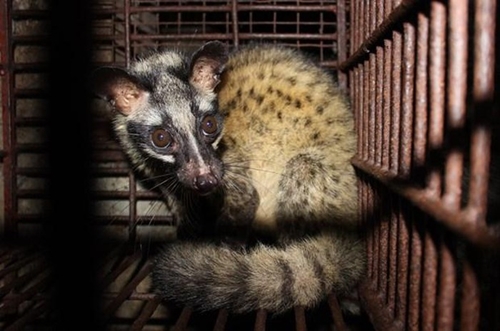A wide range of products from endangered species, such as ivory, rhino horns, bear’s paws, and tiger skins, are available and openly advertised on popular social media networks and online marketplaces which give sellers easier access to buyers and allow both of them to remain anonymous.
    |
 |
|
Joint efforts are being made to crack down on the illegal trade of wild animals on the Internet in Vietnam. (Photo for illustration: ENV) |
The Education for Nature Vietnam (ENV) said on May 26 that it found more than 2,400 advertisements for wildlife species’ parts on social media sites Facebook, YouTube, Zalo, and TikTok in 2019. There have been 424 cases by the end of April this year.
Fortunately, more and more users are ready to report on illegal wildlife trade on such websites, the ENV said.
At the same time, Facebook, Zalo, and several e-commerce platforms like Lazada and Shopee are joining hands to remove advertisements of wildlife products on their sites while local authorities across the country have been more aware of the risk on the Internet and started getting tough on violations.
In May, Facebook removed 277 posts selling wild animals on a major group named “Hoi Anh Em Ba Mien” (Group of Brothers across three regions) and issued warnings to deactivate the group if more breaches are found.
In Da Nang, local police discovered and seized 12 individuals of various endangered birds of prey after searching home of a trader who was openly seeking buyers on Facebook. The trader was later fined over 11 million VND (480 USD) for his offence.
In February, a man living in Hoan Kiem district, Hanoi received 36 months behind bars for illegally transporting a large jar of liquor containing two paws of an Asian black bear. Police traced an advertisement about the liquor jar posted by his wife on Facebook and caught him red-handed while he was carrying the jar to a buyer.
Another woman from Hanoi was sentenced 12 months in prison for illegally trading a liquor jar with a baby Asian black bear inside on the Internet.
ENV Deputy Director Bui Thi Ha said the center hopes Vietnamese authorities will continue taking moves to combat wildlife cybercrimes in particular and put an end to wildlife trade in general.
Source: VNA